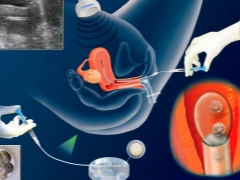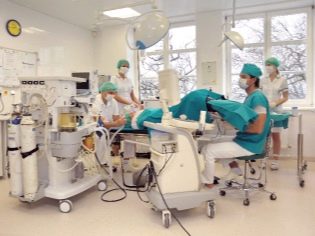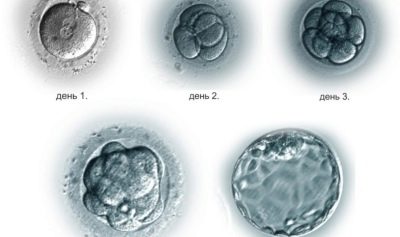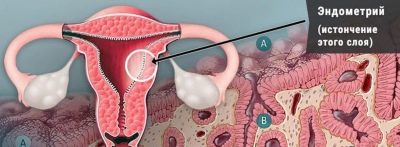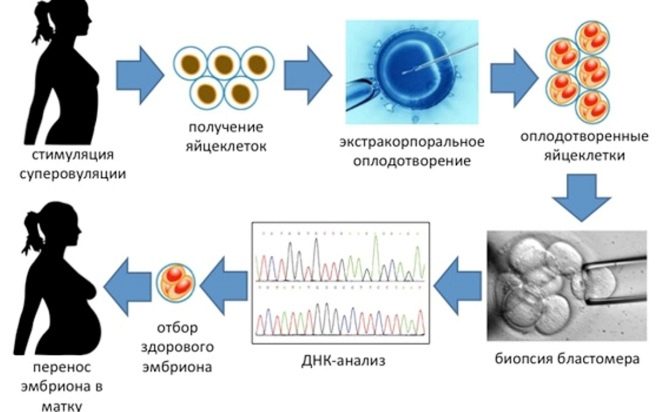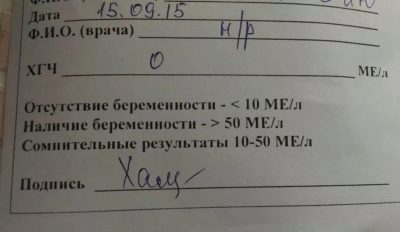Why is not always the implantation of the embryo after IVF? Causes and symptoms
Bad protocol IVF, alas, not uncommon. According to existing medical statistics, only 35% of attempts for the first time end with the onset of pregnancy. With repeated attempts, the likelihood that the embryos will take root, slightly increased, but still does not exceed 50-60%. What is the reason for the absence of pregnancy, why it can not occur the first time, we will tell in this material.
What does success depend on?
In vitro fertilization is a technically challenging and high-precision medical procedure that requires doctors to have a certain amount of skill and experience. They actually take upon themselves the duties of God — they receive the germ cells of a man and a woman, they perform jewelry fertilization in a special laboratory, the embryos are evaluated by an embryologist. Only after this is the transfer of viable and strong embryos into the uterus. This is where the duties of the doctors end, and the real higher forces come into play, because no one can guarantee that everything went well.
Success depends on a huge range of reasons. Everything is important - whether the correct protocol type was chosen, whether the drug was correctly chosen to stimulate the woman’s ovaries, whether their response to stimulation was adequate, whether the follicles were punctured jewelery and whether the right time was taken for this, what was the quality of the eggs and spermatozoa, how fertilization took place, how fast were the embryos crushed and grown during cultivation.
A woman’s body must also be ready to take germs. If her endometrium is not well prepared, does not have the desired thickness and friability, the embryo does not survive after transfer. A considerable percentage of success, estimated even by skeptical rationalist doctors, depends on the woman’s banal luck and on factors that are beyond the control of medicine.
The reasons for the lack of implantation
If we consider the individual causes, they will be revealed very much. They may be covered in medical error - the doctor chose the wrong protocol, introduced embryos too quickly, prescribed embryo transfer at the wrong time for this, when the functional layer of the female uterus was not completely ready for possible implantation. Given the level of development of medicine at the present level, as well as extensive experience in IVF in Russia, such reasons occupy no more than 3% of the total number of unsuccessful protocols.
The next group of reasons is more diverse - it is a violation of women's health. The embryo did not survive, which means that there were no favorable conditions for implantation. Most often, it does not occur due to endocrine disorders in the patient's body.
Hormonal background is a non-permanent phenomenon, the concentration of hormones changes even during the day, and in women with endocrine diseases, the metamorphosis can be spontaneous.
The reason may be excessive stimulation of hormones of the sex glands, which was carried out to obtain oocytes. With the development of hyperstimulation syndrome, the probability of a successful protocol is significantly reduced. Lack of progesterone in the second phase of the menstrual cycle can also prevent the embryo from implanting in the endometrium. Excess FSH can also cause failure. An important factor is the age of the woman.Up to 35 years, the chances of getting pregnant are significantly higher than after 40 years.
Endometriosis, uterine myoma, and ovarian disease reduce the likelihood of pregnancy. If a woman has previously undergone several abortions, or she has undergone surgical curetching of the uterus for medical reasons, her functional layer of the endometrium is exhausted, thin and uneven. Implantation in such conditions is extremely difficult.
Under the influence of a rather aggressive hormone therapy, which the woman has undergone, some of the pre-existing chronic diseases may worsen. And this particular relapse can play a decisive role.
The reason why the embryo did not attach could be infection after the transfer of acute viral infections - SARS and influenza. A violation of the regimen recommended after embryo-transfer can adversely affect - excessive exercise, sex, taking medications that are not coordinated with your doctor, lifting weights, rest and eating.
Very often, the reason for the lack of long-awaited implantation is the nervous factor. A woman worries so much about the outcome of the protocol that the stress she is experiencing becomes chronic, permanent. As a result, the natural production of sex hormones is reduced, and stress hormones suppress them. The uterus comes to tone, which prevents engraftment of the ovum. The share of health problems and psychological factors is more than 80% of the failure in IVF.
And finally, the third group of causes - problems with the embryo. Initially, few eggs could be obtained, and after fertilization, it was possible to obtain even less quality embryos. In this case, in agreement with the woman, the strongest of the resulting ones are subject to replanting, but this does not mean that they are the best by definition. The category of such embryos may be lower than good and excellent, and hence the chances of implantation in the embryo will be lower.
Poor quality can be not only sperm in some forms of male infertility, but also female oocytes. With age, germ cells lose their reproductive functions.
Sometimes the reason for the lack of implantation can be pre-genetic pre-implantation diagnostics, if the embryo was injured during the biopsy of the embryo cells.
Embryonic causes account for no more than 10–15% of the absence of a positive result after IVF. Another 2-3% are unexplained reasons that cannot be detected even after a long and thorough examination of partners whose germ cells were used in the unsuccessful protocol.
Signs of a failed protocol
Minor scanty discharge after embryo transfer for several days is not at all a sign of failure, it is a variant of the norm. Allocation due to hormonal therapy experienced, and there is nothing strange and disturbing if they last no more than two weeks.
An alarming symptom is the increased secretion, which gradually turns into bleeding. In this case, you should immediately call the "emergency room" and go to the gynecological hospital. The causes of bleeding will be established, the necessary treatment is provided, but the likelihood that this implantation took place is almost zero.
Menstruation after unsuccessful IVF protocol is different from normal. They are a little more abundant and painful than before, larger clots may appear in the blood discharge.
The main sign of an unsuccessful protocol is a negative blood count for hCG on day 14 after embryo transfer. Although there are exceptions here - late implantation and later, respectively, an increase in the level of the chorionic gonadotropic hormone in the blood.
Sometimes implantation occurs, but for the above reasons (one or a complex), the ovum cannot continue to develop, does not receive the necessary substances, is not viable by itself. It is rejected, or missed abortion occurs.In this case, the symptoms can be a nagging cramping in the lower abdomen. If the rejection occurred before 14 days, then the woman may not feel it at all.
Ultrasound, which is always prescribed by medical standards for days 21-22 after embryo transfer, can finally put everything in its place.
When can I repeat?
After an unsuccessful attempt, it is important to establish the cause, which led to the absence of implantation or rejection of embryos, in order to exclude it in the next attempts as far as possible. To do this, after menstruation, a woman should consult a doctor, who will prescribe a detailed examination.
According to the results of the research and analyzes, the reproductologist will be able to set an approximate timeline for the following protocol. A woman is given time to recover physical and moral, for treatment, if it is prescribed. On average, a break of 3 months is considered adequate. If it was necessary to scrap the uterus, the waiting period can be extended to six months.
Next month, attempts can only be undertaken by those who underwent replanting in the natural cycle, without any stimulation or support at all.
You will learn more about the causes of failures after IVF by watching the following video.
